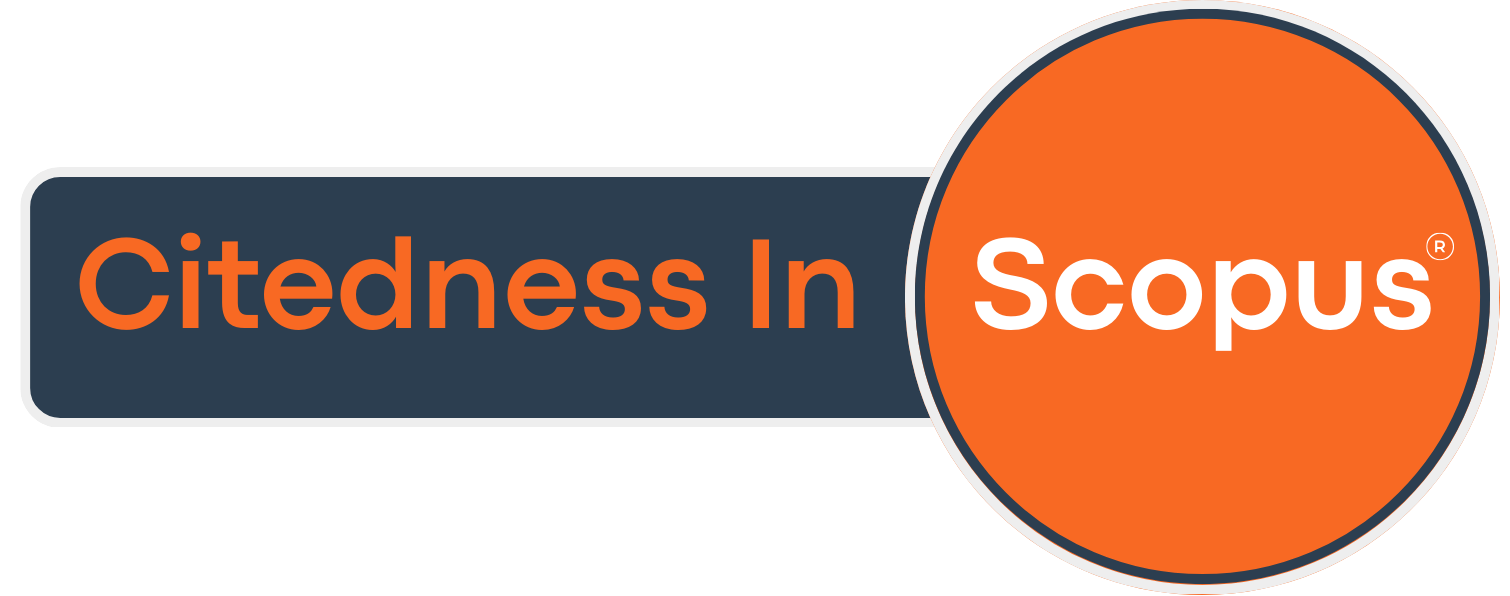ASSESSING STUDENT LEADERSHIP CONTRIBUTION TOWARDS THE ATTAINMENT OF UNIVERSITY GOALS IN CRISIS PERIOD IN THE NORTH WEST REGION OF CAMEROON
Downloads
Objective: Since 2016, public, private and confessional owned Universities within Bamenda, the Metropolitan capital of the North West Region of Cameroon have struggled to sustain their tri-function mission of teaching, research and community outreach; amidst a raging conflict – the Anglophone crisis, where education stakeholders and education infrastructure have been targeted. Given the critical place of student leaders in university governance sustainability; this study therefore assessed student leadership contribution in aiding the attainment of university goals and objectives within the conflict period. Key focus was on three dimensions: communication strategies, student mobilization efforts, and advocacy for student interests. Method: Using a mixed concurrent nested research design, data was collected from university students, student leaders and University administrators using a structured questionnaire administered to 278 final year undergraduate and postgraduate students from three selected universities, along with in-depth interviews with 7 student leaders and 3 university administrators. Simple descriptive statistics of frequency counts and percentages, and thematic analyses were used to analyze data from the questionnaire and interviews respectively. Results: The findings revealed that student leaders generally employed an effective communication strategy (67.6% approval as against 32.4%), with social media being critical in their strategy. Student leaders’ mobilization strategy was rated as positive (70% as against 30%). Advocacy for students’ interest received a relatively positive rating (63.4% as against 36.6%). Novelty: The study notes that while student leaders have played a critical role in facilitating university functioning during the conflict period; there are however opportunities for enhancement in bidirectional communication, inclusive student mobilization, and translating advocacy into concrete policy changes. Recommendations include implementing structured feedback mechanisms, developing targeted engagement strategies for underrepresented students on campuses, and strengthening collaborative approaches with university administration to increase the effectiveness of advocacy efforts.
P. G. Altbach and H. de Wit, Student Activism in an Era of Decolonization and Globalization. Springer, 2020.
N. Amundala, Youth and Student Activism in Cameroon. Langaa RPCIG, 2010.
Association of American Universities (AAU), "Strategic Planning in Higher Education," 2020. [Online]. Available: https://www.aau.edu
A. W. Astin, "Student involvement: A developmental theory for higher education," J. oll. Student Pers., vol. 25, no. 4, pp. 297–308, 1984.
R. Balsvik, Haile Selassie’s Students: The Intellectual and Social Background to Revolution. Michigan State University Press, 2005.
S. Bergan, T. Gallagher, and I. Harkavy, Student Engagement in University Decision-Making: Policies and Practices. Council of Europe, 2021.
A. Biney, The Political and Social Thought of Kwame Nkrumah. Palgrave Macmillan, 2011.
C. Bovill and C. J. Bulley, "A model of active student participation in curriculum design: Exploring desirability and possibility," in Improving Student Learning (18), Oxford: Oxford Centre for Staff and Learning Development, 2011.
C. Bryson, "Engagement through partnership: Students as partners in learning and teaching in higher education," Int. J. Acad. Dev., vol. 21, no. 1, pp. 84–86, 2016.
P. Carey, "Student as co-producer in a marketised higher education system," Innov. Educ. Teach. Int., vol. 50, no. 3, pp. 250–260, 2013.
P. Carey, "The impact of institutional culture, policy and process on student engagement in university decision-making," Perspect.: Policy Pract. High. Educ., vol. 22, no. 1, pp. 11–18, 2018.
C. Cook-Sather, C. Bovill, and P. Felten, Engaging Students as Partners in Learning and Teaching: A Guide for Faculty. John Wiley & Sons, 2014.
Council for the Advancement of Standards in Higher Education (CAS), CAS Professional Standards for Higher Education, 2019.
P. Felten et al., "A call for expanding inclusive student engagement in SoTL," Teach. Learn. Inq., vol. 1, no. 2, pp. 63–74, 2013.
M. Fielding, "Patterns of partnership: Student voice, intergenerational learning and democratic fellowship," in Rethinking Educational Practice Through Reflexive Inquiry, N. Mockler and J. Sachs, Eds. Springer, 2011, pp. 61–75.
M. Z. Hackman and C. E. Johnson, Leadership: A Communication Perspective, 5th ed., Routledge, 2013.
S. R. Harper and S. J. Quaye, Student Engagement in Higher Education: Theoretical Perspectives and Practical Approaches for Diverse Populations. Routledge, 2009.
M. Healey, A. Flint, and K. Harrington, "Students as partners: Reflections on a conceptual model," Teach. Learn. Inq., vol. 4, no. 2, pp. 8–20, 2016.
K. E. Hinton, A Practical Guide to Strategic Planning in Higher Education. Society for College and University Planning, 2012.
International Crisis Group (ICG), "Cameroon’s Anglophone Crisis at the Crossroads," 2017. [Online]. Available: https://www.crisisgroup.org/africa/central-africa/cameroon/cameroon-s-anglophone-crisis-crossroads
N. Jua, "Education, ethnicity, and social transition in Cameroon," Afr. Stud. Rev., 2003. [Online]. Available: https://www.cambridge.org/core/journals/african-studies-review
R. Junco, Engaging Students through Social Media: Evidence-Based Practices for Use in Student Affairs. John Wiley & Sons, 2014.
M. Klemenčič, "Student power in a global perspective and contemporary trends in students’ organizing," Stud. High. Educ., vol. 39, no. 3, pp. 396–411, 2014.
M. Klemencic, "Student Participation in Higher Education Governance: Improving Institutional Responsiveness," High. Educ. Policy, vol. 34, no. 2, pp. 223–241, 2021.
M. Klemencic, "Student Representation in Higher Education Governance in Europe," Eur. J. High. Educ., 2021.
M. Klemenčič and B. Park, "Student Power in a Global Perspective," High. Educ. Q., 2018.
S. R. Komives, N. Lucas, and T. R. McMahon, Exploring Leadership: For College Students Who Want to Make a Difference, 3rd ed., Jossey-Bass, 2013.
K. L. Krause and H. Coates, "Students’ engagement in first‐year university," Assess. Eval. High. Educ., vol. 33, no. 5, pp. 493–505, 2008.
G. D. Kuh, High-Impact Educational Practices. AAC&U, 2008.
G. D. Kuh, "What student affairs professionals need to know about student engagement," J. Coll. Student Dev., vol. 50, no. 6, pp. 683–706, 2009.
G. D. Kuh, J. H. Schuh, E. J. Whitt, and Associates, Student Success in College: Creating Conditions that Matter. John Wiley & Sons, 2011.
A. Lizzio and K. Wilson, "Student participation in university governance," Stud. High. Educ., vol. 34, no. 1, pp. 69–84, 2009.
T. M. Luescher et al., Student Politics in Africa: Representation and Activism. African Minds, 2017.
T. M. Luescher, "Student Representation in University Governance in Africa," J. Student Affairs Afr., vol. 8, no. 1, pp. 1–18, 2020.
T. Mazzarol and G. N. Soutar, "The push-pull factors influencing international student selection of education destinations," Int. J. Educ. Manag., vol. 16, no. 2, pp. 82–90, 2002. [Online]. Available: https://doi.org/10.1108/09513540210418403
E. S. Ngwa and L. N. Folabit, "Student Representation in Higher Education Governance in (English-Speaking) Cameroon: The politics, challenges and wayward," in The Bloomsbury Handbook of Student Politics and Representation in Higher Education, M. Klemenčič, Ed. Bloomsbury Academic, 2024, pp. 129–146.
E. Nkengfack, Digital Activism in Cameroon. Friedrich-Ebert-Stiftung, 2022.
F. Nyamnjoh, "Cameroon: A Country United by Ethnic Ambition," Afr. Insight, 1999.
S. Okafor, The Struggle for Nigerian Universities. New Generation Books, 2014.
C. R. Pace, "Measuring the quality of student effort," Curr. Issues High. Educ., vol. 2, pp. 10–16, 1980.
J. Percival, "The 2005 University of Buea Protests: A Case Study," CODESRIA, 2008.
C. Seemiller and M. Grace, Generation Z Goes to College. John Wiley & Sons, 2016.
J. P. Shapiro and J. A. Stefkovich, Ethical Leadership and Decision Making in Education: Applying Theoretical Perspectives to Complex Dilemmas. Routledge, 2016.
C. C. Strange and J. H. Banning, Designing for Learning: Creating Campus Environments for Student Success. John Wiley & Sons, 2015.
V. Tinto, "Dropout from higher education: A theoretical synthesis of recent research," Rev. Educ. Res., vol. 45, no. 1, pp. 89–125, 1975.
V. Trowler, Student Engagement Literature Review, The Higher Education Academy, vol. 11, no. 1, pp. 1–15, 2010.
UNESCO, Reimagining the Role of Students in Higher Education Governance. UNESCO Publishing, 2022.
L. Zeilig, Revolt and Protest: Student Politics and Activism in Sub-Saharan Africa. I.B. Tauris, 2012.
N. Zepke, "Student Engagement and Leadership in Higher Education," Int. J. Leadership Educ., vol. 22, no. 6, pp. 723–735, 2019.
Copyright (c) 2025 Emmanuel Shu Ngwa

This work is licensed under a Creative Commons Attribution 4.0 International License.























